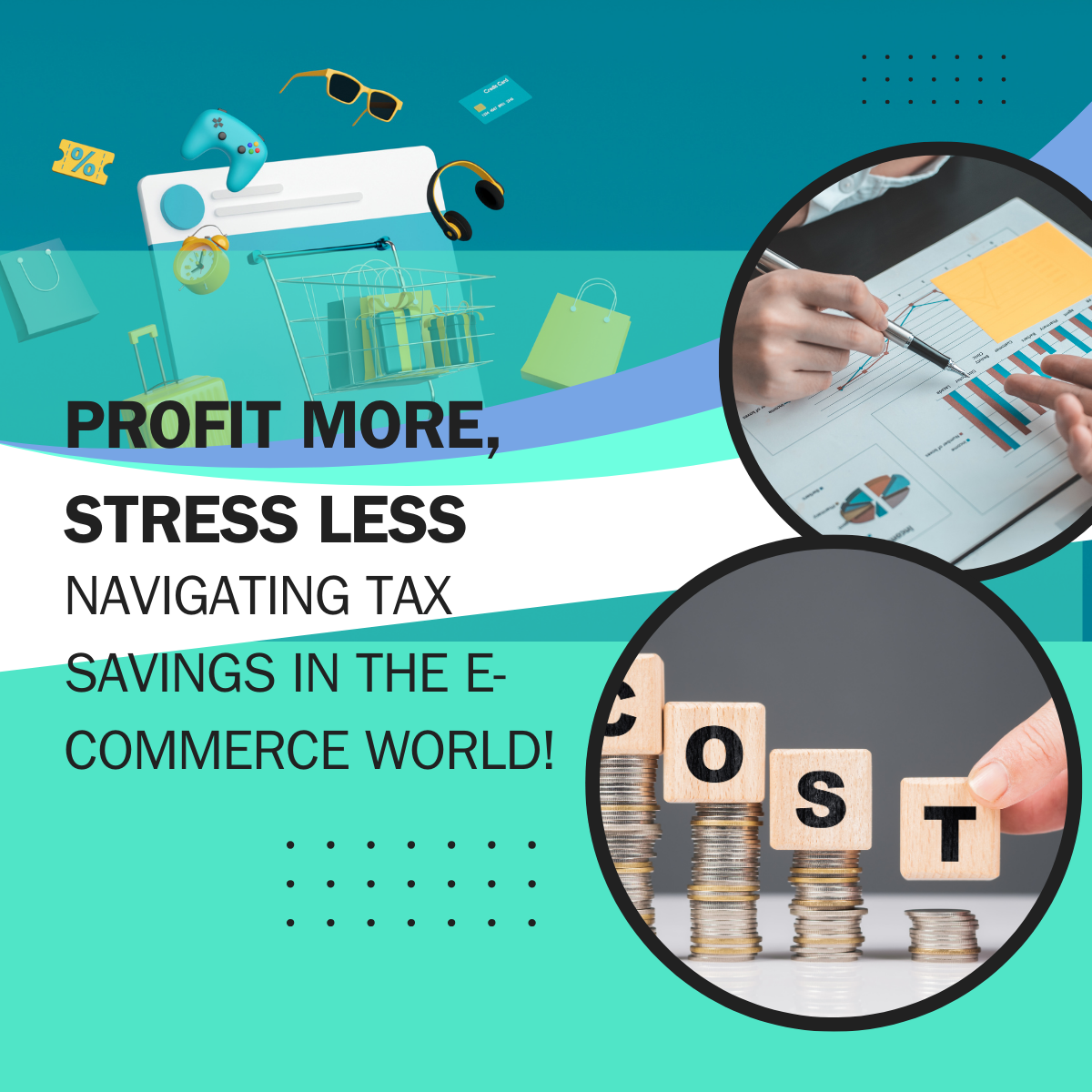Profit More, Stress Less: Navigating Tax Savings in the E-Commerce World!
#StartingInBusiness • #TaxTips • #BusinessExpenses • #CashFlow • #BusinessGrowth • 14-Oct-2024 07:07:35 • Written by: Ewa Jakeman

Demystifying Tax Deductions: Uncover Hidden Savings for Solo E-Commerce Owners
As a solo entrepreneur running an e-commerce business, you’re likely familiar with the hustle and bustle of managing sales, inventory, and customer service. Amid the whirlwind of daily tasks, tax season can feel like an added burden, especially when it comes to understanding what expenses you can deduct. The good news? There are plenty of hidden tax deductions that you might be overlooking, which can lead to significant savings and help keep your hard-earned profits where they belong—in your pocket.
In this blog, we will unravel the mystery behind tax deductions specifically tailored for solo e-commerce owners. We’ll explore common misconceptions, highlight often-overlooked deductions, and explain how you can optimize your finances for greater success.
- Understanding Tax Deductions
Tax deductions reduce your taxable income, which means you pay less in taxes overall. However, knowing what qualifies as a deductible expense is crucial for maximizing your savings. Many e-commerce entrepreneurs fail to take advantage of all eligible deductions simply because they aren’t aware of what they can claim.
- Commonly Overlooked Deductions for E-Commerce Owners
Here are some deductions that solo e-commerce entrepreneurs often overlook:
Home Office Deduction
If you run your business from home, you can deduct a portion of your home expenses, such as rent, utilities, and internet service. The amount you can deduct depends on the size of your workspace relative to your home.
Business Supplies and Equipment
Expenses for office supplies, packaging materials, and equipment (like computers or printers) are all deductible. If you purchase inventory, you can also deduct those costs.
Software and Subscriptions
Many entrepreneurs invest in software to help manage their e-commerce business. Costs for accounting software, website hosting, and email marketing platforms can be deducted as business expenses.
Shipping Costs
Shipping and delivery costs incurred while sending products to customers are fully deductible. This also applies to the cost of packaging materials.
Professional Services
Fees paid to accountants, consultants, or other professionals who help you with your business operations are deductible. This includes legal fees if you’re setting up a business structure or trademarking your brand.
- Travel and Meal Expenses
Traveling for business? You can deduct costs related to travel, such as transportation, lodging, and meals while away from home. However, be aware of the rules regarding business vs. personal travel to ensure you claim the right expenses.
- Education and Training Costs
Investing in your skills or your team's development can be claimed as a deduction. Courses, webinars, and training sessions that enhance your business expertise can lower your taxable income.
- Retirement Contributions
Paying into your pension can provide significant tax benefits. Contributions to a pension scheme, such as a personal pension or a self-invested personal pension (SIPP), are tax-deductible, reducing your overall tax liability while helping you save for the future. This not only supports your long-term financial security but also ensures you're taking advantage of available tax relief.
- Keep Accurate Records
To maximize your deductions, maintaining organized records is essential. Keep receipts and invoices for all business-related purchases. Using accounting software can simplify this process by tracking expenses automatically.
- Why You Need a Professional Accountant
While managing your own tax deductions might seem feasible, the expertise of a professional accountant can make a world of difference. Here’s why hiring an accountant is crucial for your e-commerce business:
- Maximizing Deductions: Accountants are knowledgeable about current tax laws and can help you identify deductions you may not be aware of, ensuring you don’t leave money on the table.
- Compliance and Accuracy: Tax regulations are complex and constantly changing. A professional accountant can ensure that your filings comply with the law, reducing the risk of audits or penalties.
- Strategic Tax Planning: An accountant can provide valuable insights and strategies to minimize your tax liability. They can help you make informed decisions about investments, expenditures, and retirement contributions that align with your financial goals.
- Time-Saving: Managing finances and understanding tax deductions can be time-consuming. By outsourcing these tasks to a professional, you can focus on growing your business and serving your customers.
- Peace of Mind: Knowing that a qualified professional is handling your accounting and tax matters can alleviate stress, allowing you to focus on your business operations with confidence.
Conclusion: Unlock Your Savings
For solo e-commerce entrepreneurs, understanding and leveraging tax deductions can lead to significant savings and a healthier bottom line. By identifying hidden deductions, maintaining accurate records, and seeking professional guidance, you can demystify the tax process and focus on what truly matters—growing your business.
%20(transparent).png)
